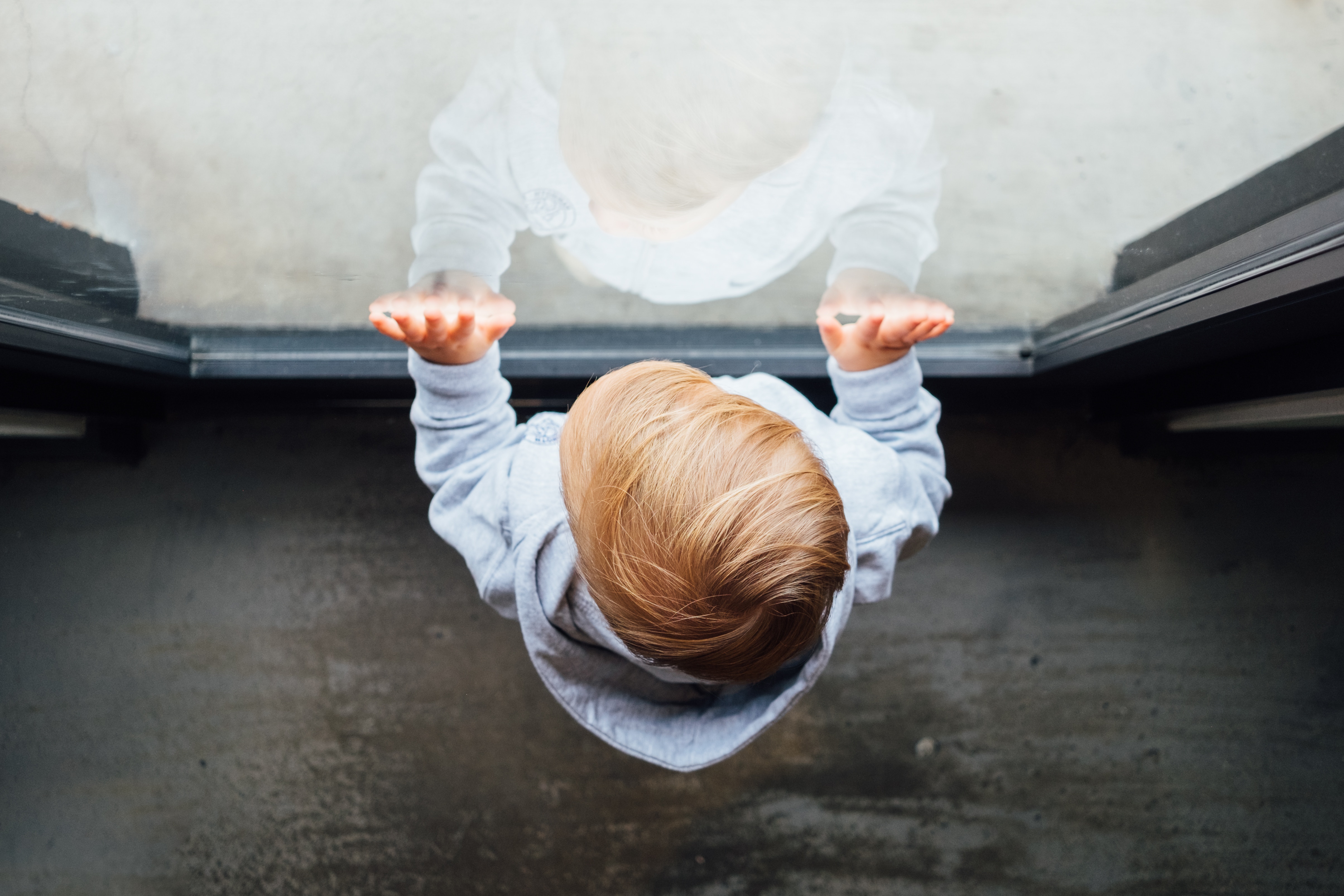
The great thing about Jordan Peterson’s book 12 rules for life is how just about all of the rules laid out in this book are interconnected. I wrote last week about Chapter 6 titled Put your house in perfect order, which is probably my favorite of all the sections. The reason I say probably is that in the next chapter I’m going to write about is right there with it.
Chapter 5 is titled Do not let your children do things that make you dislike them. When you read it, your first reaction is either wtf or no $hit, depending on your parenting style.
For me, this chapter is an extension of putting your house in perfect order. How could you possibly put your home in perfect order if you’re a parent as I am and have kids that are a mess? Something to think about for all of us parents.
That said, this chapter has taken me two readings and hearing Peterson carve this up live in Austin to almost understand it, and this blog is even more work towards doing so, but I’ll stop rambling now and get to the meat here. Be warned though; this will burn through you if you’re a parent and have some things you need to work on or have a child with behavior issues, as it should. I know it does for me.
Testing of boundaries
Children come into this world at a very early stage of development. Which means that they are a work in progress. Peterson beats it home in this chapter that children need rules and guidelines on how to play the game of life, and that’s where parenting comes into play. That’s what parenting is ultimately about. Teaching your kids how to play, and hopefully be successful, at the game of life and function in society.
As any parent knows, children are curious and exploratory from very early on in life, and that will continue throughout their development until they are adults and even on beyond that. They are born testing limits that are often camouflaged by the complete infatuation parents tend to have for their children. We see them as angels and always do, for the most part even when they grow up and call you drunk from a party or get busted with a bag of weed at school; we often give them the benefit of the doubt because of that love for them. I’ve been guilty of this for a long time with my son over his first 12 years of development. Thankfully we haven’t got to the calling drunk or busted with weed part….
But as children develop Peterson calls out that they have the capacity for evil inside them. When they are testing the limits of bad behavior, this is what is happening, and if not managed appropriately by the parent, we are signing off on that bad behavior. We often don’t want to hurt or damage our child’s spirit because we “feel” they don’t know any better, but the reality is that usually they do, they are just trying to test how far they can push the limits.
Peterson’s main point here is significant though and the part where I start to twist up inside. There is a horrible phenomenon happening in society with this type of passive parenting, and the evidence is clear. When we don’t fill the role of a teacher in educating our children on boundaries that they cannot cross, we are leaving it up to the rest of society to do so.
If there are times when you dislike your child, and you’re their parent, what do you think the world will do when they act that way? How do you think the world that doesn’t care nearly as much as you do will take to your child in the game of life? The world will immediately punish your child when he or she steps over the boundary and hand down a merciless judgment. That’s what happens.
Teachers will run out of patience and stop teaching your child and spend time with students they enjoy teaching. Neighbors will run out of hospitality to you as a neighbor and stop inviting your child over because they don’t like being annoyed in their own home. The cycle will go on and on, and it won’t stop at adulthood.
Children that don’t learn how to function in society and are disliked as children grow up to be the same disliked adults. As a teenager, mentors won’t want to mentor them. In college, social circles that will highly benefit them will cast them out. When they get a job, employers will not promote them or fire them. Partners and relationships will fail because they suck at functioning in society all because of boundaries and parenting that weren’t handled the correct way. You see where this goes.
This is just the external view of the world around them as we will see it. The internal damage to a child that never learns how to function in society properly is heartbreaking, especially to anyone that is a parent. A child that is repeatedly rejected and cast out because of behaviors that are not preferred by society will go on to live a life of rejection by most of the world other than his or her parents.
Imagine a world for a child where they continuously act poorly because they never learned any other way, being repeatedly rejected, and often time; they don’t even realize they are behaving poorly. Throughout their life, the world will deny them because of this behavior. At some point, they begin to pick up on this rejection, and it causes other chronic psychological damage like depression and anxiety. The depression and anxiety then often lead to medication that drives other behaviors or impact scholastic performance. And the cycle goes on and on until they are adults and it’s sink or swims time. Guess what happens then?
What to do about it
Peterson advocates that a parent’s role is to play the part of society to a child. To teach children what is acceptable and what isn’t. This is what I’ve started doing with my son, and I’ve seen some significant change in just the short time I’ve done it. Still, a long ways to go through.
Here’s how Peterson lays it out:
- Set the rules of the game, but not too many. Things like eat in a civilized manner
- Pay attention when spoken to by adults so they will want to help your child and teach them.
- Be good company to others so they will be invited and welcomed by others.
- Use the minimum necessary force. Whether that be a glare or a spanking, depends on the child, but use the bare minimum.
- A patient adult should be able to easily out will a two-year-old
- When they comply, make sure they know that they are playing by the rules.
- Parents should come in pairs. The reality is that parenting is hard, and one parent is not going to be on point every day. There needs to be another parent that is present that loves and wants to teach a young child.
- Peterson speaks specifically that single parenting is hard. It means that the parent needs to focus that much harder on being on point as much as possible.
His final point and I pulled out of bullets and bolded on purpose here, is that as a parent, you should not underestimate your own capacity for malice when it comes to your own child misbehaving. Peterson speaks clearly that parents build up resentment for their child just like anyone else. Sure the Mendoza line is different, but there is a limit. Parents that go past that limit will take vengeance on their own child for behavior, and that is not good parenting. Too many parents hold back discipline for whatever reason until they reach that point and then they are actually punishing a child for past behavior that has built up over time. Think about what type of message that sends to a child and how that could impact them as you play the proxy of society teaching them the rules to play by.
Hitting close to home
I spoke at length about my trip with my son this past summer in a previous post you can read about here. On that trip, I had my father-in-law with me, and we discussed this principle of not letting your kids do things that you dislike at length on the side of a mountain in West Texas. We talked about Adrian’s persistence on being on his phone, to the point that it was annoying to everyone, including us.
Adrian didn’t realize it, but it was abundantly clear to all of us that he had no understanding of how out of bounds in the circle of society he was at that moment. I also saw people that I know love the kid, cast him aside because they were annoyed. They didn’t want to be around him because he was so wrapped up on playing Fortnite in the middle of the desert 350 miles away from anything. That was time that he missed out from people teaching him things about camping and hiking. Conversations he missed out on things that would have really benefited him because he did not understand that he was doing things that adults didn’t like.
My father-in-law actually came to me afterward and apologized for letting Adrian’s persistent infatuation with technology get to him and that he wouldn’t say any more about Adrian being on his phone. I then thought about this chapter, and I told him that Adrian is a 12-year-old boy that is from a divorced household trying to learn how to function in the world. By bringing him out camping and doing the things that we do together, I’m trying to help him learn the rules of existing in society. That’s what a father that loves his child does. I also said that I know that he cares for Adrian as well and that he is only reacting how anyone would react when a child is misbehaving. I told him that I’d much rather he learn the lesson of what happens when he does things adults dislike as a 12-year-old on a camping trip in West Texas from all of us that love and care for him, than as an adult out in society that will not care nearly as much as we do.
So the lessons for my son and hopefully all of our kids continues….

In Dr. Peterson’s talk in Austin, he mentioned the Duchenne smile… an involuntary reflex that only happens in a legitimately happy, delighted smile, and cannot be faked. It’s also called “smizing,” or smiling with the eyes.
Well, there’s also a false smile, where the corners of the mouth are upturned… but the eyes are NOT smiling. The sort of smile you end up giving when you’re disgusted, but attempting to be polite. This is a worrisome, predatory look… the sort of look you’d get from a psychopath!
Continuing in that vein… we, as adults, are socially conditioned to believe that we must smile at young children. So if you’ve got a real brat… they’re likely to grow up around adults that are prone to grinning at them like murderous psychopaths. It’s hard to say what the long-term ramifications of that sort of social feedback are, but it doesn’t sound good.
For sure. That would be yet another passive consequence of a child that never learns the rules to play by in society. Really it equates to a childhood full of awkward and disingenuous politeness with the real intent of the adult being to flee the child’s presence as soon as possible. Nobody should want that for their child.